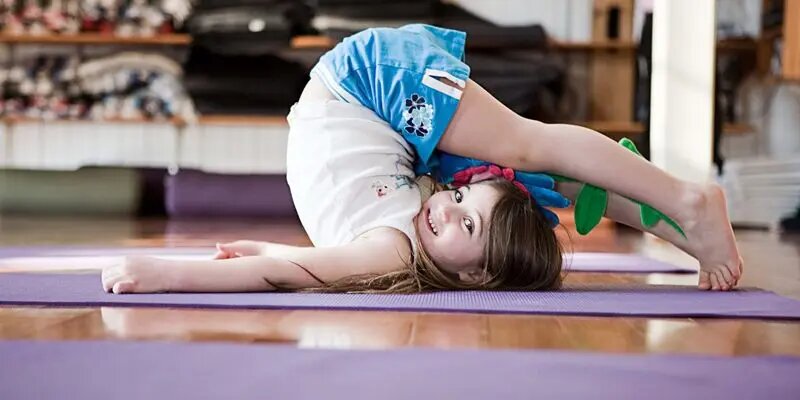Yoga is not just for adults—it is a practice that can greatly benefit children as well. Yoga for kids offers a fun, engaging, and holistic approach to promote physical fitness, emotional well-being, and mental clarity. Through a combination of yoga postures, breathing exercises, mindfulness techniques, and playfulness, children can develop self-awareness, improve concentration, enhance flexibility, and cultivate a sense of calm. In this article, we will explore the numerous benefits of yoga for kids and how it can positively impact their overall development.
Physical Benefits
Engaging in yoga poses helps children develop strength, balance, coordination, and flexibility. Yoga poses for kids often mimic animals, nature, or objects, making it an enjoyable and imaginative experience. These postures promote better posture, proper body alignment, and increased body awareness. Regular yoga practice can also help improve motor skills, enhance physical stamina, and support the healthy development of bones and muscles.
Emotional and Mental Well-being
Yoga provides children with tools to navigate and manage their emotions effectively. By incorporating mindfulness and breath awareness, kids learn to connect with their feelings and develop self-regulation skills. Breathing exercises and relaxation techniques help children calm their minds, reduce anxiety, and improve their ability to focus and concentrate. Yoga also fosters self-confidence, self-esteem, and a positive body image by encouraging self-acceptance and a non-competitive mindset.
Enhancing Concentration and Academic Performance
Engaging in yoga cultivates a valuable set of skills crucial for academic achievement: focus and concentration. By embracing mindful movements and breathwork, children develop the capacity to be fully present in the present moment, thereby enhancing their ability to concentrate both within and beyond the confines of the classroom. Consistent yoga practice has demonstrated the ability to boost memory, cognitive function, and overall academic performance. By integrating yoga into their lives, children can harness these benefits to optimize their educational journey.
Stress Reduction and Emotional Resilience
Children today face various stressors, including academic pressure, social challenges, and technological overstimulation. Yoga offers a valuable outlet for stress relief and emotional resilience. By practicing yoga, kids learn relaxation techniques, such as deep breathing and visualization, that can help calm their nervous system and reduce stress levels. Yoga also provides a safe space for self-expression, allowing children to process and release emotions in a healthy and constructive manner.
Developing Social Skills and Empathy
Yoga classes designed for children often incorporate group activities and partner poses, creating an environment that nurtures a sense of community and fosters social interaction. Engaging in yoga poses together promotes collaboration, teamwork, and effective communication skills. Moreover, yoga serves as a catalyst for instilling qualities such as kindness, compassion, and empathy. Through mindful practices, gratitude exercises, and fostering respect for others, children are encouraged to cultivate these virtues, nurturing a harmonious and supportive atmosphere within the yoga community.
Promoting Mindfulness and Self-Awareness
Yoga nurtures mindfulness, the art of observing the present moment with a sense of curiosity and non-judgment. Through the practice of yoga, children acquire the skill to attune to their bodies, thoughts, and emotions, fostering self-awareness and introspection. The mindfulness abilities cultivated through yoga extend beyond the mat, empowering children to navigate obstacles, make informed decisions, and sustain a constructive mindset in various aspects of their lives. By embracing yoga, children lay the foundation for a lifelong journey of self-discovery and well-being.
Encouraging Healthy Habits and Body Awareness
Yoga introduces children to the importance of self-care, healthy habits, and body awareness from an early age. By practicing yoga, children learn about the connection between their bodies, breath, and overall well-being. Yoga encourages children to listen to their bodies, respect their limits, and make choices that support their health. This awareness can positively influence their dietary choices, sleep patterns, and overall lifestyle habits.
Conclusion
Through yoga postures, breathing exercises, mindfulness techniques, and playfulness, children can experience numerous benefits, including physical fitness, emotional well-being, enhanced concentration, stress reduction, social skills development, and body awareness. By introducing yoga at an early age, we empower children with tools and practices that support their overall growth, well-being, and lifelong journey towards self-discovery.


